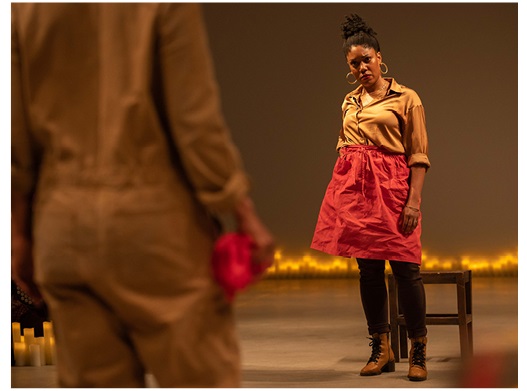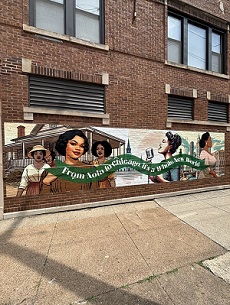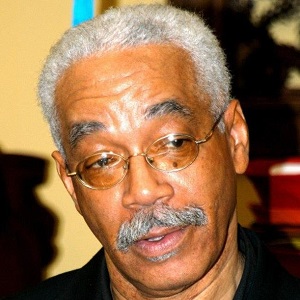“There is no denying, our community needs healing in any way we can get it. We need mental healing every day of the week; every month of the year not just October when it’s Mental Health Month.
But here we are in October, and here it is Mental Health Month, and there’s so much we need healing from. October is the month Danroy J. Henry was born. He would have been 26 years old this year. But October is also the month, October 16, 2016 to be exact, when Danroy J. Henry, known to all who knew and loved him as D.J.was killed by a white policeman. He was killed for doing nothing at all. There was a fight going on, D.J. and his friends weren’t in it. But an officer asked D.J. to move his car. And when D.J. began to move his car, as hewas told, another officer stepped in front of the car and fired through the windshield – killing D.J.
Playwright, Aleshea Harris addresses that horrific crime in a play that’s not

a play and so much more than a play, What to Send Up When it Goes Down. Erica Ratcliff, Congo Square Theater Artistic Director and What to Send Up When it Goes Down co-director describes it as a ritual. It’s a powerful play pageant-healing ritual. Ensemble member and Lookingglass Theater staff member , Kareem Bandealy says the play, which is not a play, is the most effective experience he has ever had. Unlike Erika, Kareem is Pakistani. Ordinarily that would be an unnecessary descriptive, but for a play created to heal Black minds, that is a powerful statement.
Ericka mentions that it’s less of a performance and more of a ritual – no, actually, a series of rituals that invoke healing tools for Black folk who have encountered racialized violence against Black folk. That pretty much covers just about everyone who is Black. She asks, as the playwright, Alesha Harris asks, how do we heal? How do we stay safe? How do we protect ourselves? Our children? When we know we are being constantly attacked? The play, Ericka says, offers tools that people can

use – and she adds, a big part of how these tools can be useful is for people to participate.
As Ericka and Kareem enthusiastically describe the play, you find yourself wishing you could be there. You’re wishing it was streaming on Netflix or Hulu, but how could you participate? You’re standing with the actors, they tell you. But the actors are not actors – they’re themselves and you’re yourself – you introduce yourself and the ritual begins.
Forty-one year old Alesha Harris is the playwright. “I love Alesha Harris!” Kareem blurts out at some point in the conversation. A spontaneous expression of his genuine love and appreciation for this work. “I love the way she thinks about theater,” he explains, “I love her sense of rhythm.” Along with the play, Alesha Harris provided specific instructions to those directing and performing her work: “Have fun, but don’t play.” “She wants us to have fun with the audience,” Ericka explains, “But she warns us not to play with the intention of this work, which is to honor those who have lost someone or something to racialized violence.”
“The whole play is like an epic poem,” Ericka says. And somehow, just her saying it in that way sounds poetic in itself. “There are tools inside of tools inside of tools,” she says. She wouldn’t classify it as a musical, although there is music in it. “It’s kind of incredible to watch the ensemble work,” she says, “to watch the ritual intensify as the play goes on.”

“It’s not a plot-based play,” Kareem explains, and Ericka agrees. “It’s addressing the violence on Black bodies that keeps occurring. This company of hosts that are so courageous are incredible in pulling it off.”
The Congo Square Theater Company is one of the nation’s premier African American ensemble theater companies. It first premiered What to Send Up when It Goes down in January at the Gray Theater on Chicago’s West Side, and Theaster Gate’s Rebuild Foundation’s Stony Island Arts Bank on the South Side. “We’re excited to bring it to the Lookingglass Theater, as opposed to art galleries,” Ericka said. “Here we have resources of a theater, and we have theater staff.”
“We’ve shown it on the West Side and the South Side, now we’re bringing it into the heart of downtown Chicago, and we’re excited about that,” says Ericka.
What is new this Fall, and throughout the run of What to Send Up When It Goes Down, is the Celebration of Healing Initiative, which Congo Square will debut for the first time at the Lookingglass Theater performances. The Celebration of Healing Initiative is a program that provides audiences with curated space for individual and community healing.

It includes discussions with community members and organizations, in addition to workshops in other healing modalities, including yoga, meditation and restorative healing practices. The mission of the Celebration of Healing Initiative is to offer the community practical tools for their healing journey while destigmatizing the impacts of trauma on mental, physical and emotional well-being. Celebration of Healing events are free and open to all audience members.
“We are thrilled to continue the Chicago premiere tour of What to Send Up When It Goes Down in residence at Lookingglass Theater Company,” Ericka said, “And we are also excited to be debuting The Celebration of Healing Initiative in conjunction with this vital work focused on community catharsis. We look forward to centering healing from racial trauma in all of our future works through the initiative.”
Designed to help Black communities heal from American racialized violence, What to Send Up When It Goes Down is a vital theatrical work. It is a participatory, shapeshifting experience intent on creating space for collective catharsis, cleansing and healing. The performance unfolds as a series of vignettes which employs a variety of forms, including parody, song, movement and facilitated dialogue. Breaking the fourth wall, cast members enact the script differently in each performance as members of the audience are invited not only to behold the piece as spectators, but to become part of the current that holds the story together.
This intimate, interactive 90-minute work is co-directed by Congo Square Artistic Director Ericka Ratcliff and Ensemble member Daniel Bryant. Members from the original production cast and creative team will be joined by newcomers in this iteration of the production tour.
The original production of What to Send Up When it Goes Down was generously supported by GRAY Chicago, Rebuild Foundation, McMullen & Kime Charitable Trust, Shapiro Grynstej Family Fund, Michael & Nancy Timmers, Helene Gayle, Lisa Naparstek Green and Howard Green, Vicki & Bruce Heyman, Douglas R. Brown, & Rachel E. Kraft, The Joyce Foundation and Conagra Brands Foundation. All Celebration of Healing programs will take place at Lookingglass Theater.






